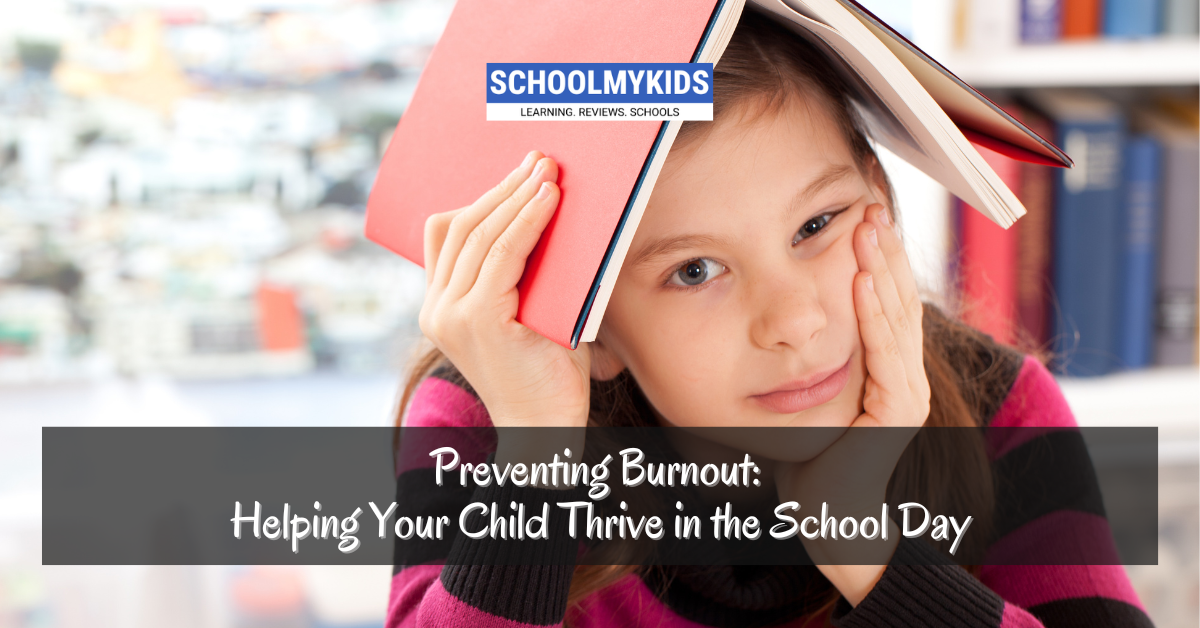As parents, it is extremely difficult to see our children grappling with the pressures of school life. The image of textbooks piled high, looming deadlines, and the ever-present pressure to perform has become a common part of student life. Unfortunately, all this is enough to leave them feeling overwhelmed and exhausted. This feeling of constant state of exhaustion is known as burnout. If it is not controlled, it can harm your child's well-being, impacting their learning, social interactions, and overall happiness.
Why Should We Never Compare Our Experiences?
When we see them struggling with daily routine activities, the urge to compare our own school experiences to our children's might arise. However, it's important to remember that the educational landscape has undergone a significant shift. The curriculum has become denser, expectations are now higher, and the social dynamics are more complex. Therefore, let's do our best to not diminish their struggles through the lens of our own past.
How to See the World Through Their Eyes?
It is important to remember that they're still children. They lack the years of experience and coping mechanisms we've accumulated. What might seem like trivial drama from our point of view could be a monumental hurdle in their world. By putting on our "empathy goggles" and seeing things from their perspective, we can truly understand their challenges and offer the support they need.
What is the Significance of a School Life?
School life is a pivotal period. It's where core memories are formed, friendships are built, and the foundation for future success is laid. A child who feels supported, engaged, and resilient will be able to navigate the real world with greater confidence and adaptability. Combating burnout isn't just about easing their immediate stress; it's about nurturing their overall well-being for a brighter future.
What are Some Practical Tips to Prevent School Burnout?
Here are some tips to help your child avoid school burnout and thrive:
1. Open Communication: Create a safe space for your child to express their anxieties and frustrations. Listen actively, without judgment. Instead of offering unsolicited solutions, try prompting them to explore their own coping mechanisms. Ask open-ended questions like, "What would make this situation feel more manageable?" or "Is there anything I can do to help?"
2. Time Management: Work with your child to develop a daily schedule. Allocate specific times for homework, extracurricular activities, and relaxation. Encourage them to prioritize tasks and break down large projects into smaller, more manageable chunks. Teaching them time management skills now will empower them to become self-directed learners.
3. The Power of Breaks: Just like adults, children need regular breaks to recharge. Encourage them to get up and move around between study sessions. A short walk, some stretching exercises, or even a few deep breaths can significantly improve focus and energy levels.
4. Celebrate Achievements (Big and Small): Acknowledge and celebrate their accomplishments, no matter how seemingly insignificant. This positive reinforcement helps build confidence and a sense of purpose, motivating them to continue striving.
5. Fuel Their Bodies: A balanced diet rich in fruits, vegetables, and whole grains provides the energy and focus needed for a demanding school day. Packing nutritious lunches, offering healthy snacks, and staying hydrated are crucial for optimal brain function.
6. Prioritize Quality Sleep: Aim for a consistent sleep schedule, ensuring your child gets enough rest each night. Adequate sleep is essential for memory consolidation, emotional regulation, and overall well-being.
7. Let Play Be Play: While academics are important, unstructured playtime is equally crucial. Encourage them to engage in activities they enjoy, whether it's reading, playing a sport, or simply spending time with friends. These activities nurture creativity, reduce stress, and provide a much-needed mental break.
8. Connect with Nature: Nature has a powerful restorative effect. Spending time outdoors, whether it's a walk in the park or a hike in the woods, can significantly reduce stress and improve mood. Encourage your child to connect with nature whenever possible.
9. Cultivate Gratitude: Help your child develop an attitude of gratitude. At the end of each day, take a few moments to reflect on things they're thankful for, big or small. Gratitude fosters a positive outlook and helps them appreciate the good things in life.
10. Seek Support When Needed: If your child's struggles seem overwhelming, don't hesitate to seek help from their teacher, counselor, or therapist. Mental health professionals can provide valuable tools and strategies to manage stress and promote emotional well-being.
Conclusion
Preventing school burnout is a collaborative effort. By working together, communicating openly, and creating a supportive environment, we can help our children go through the challenges of school life and succeed as learners. Let's empower them to grow into resilient, adaptable individuals who can approach both academic and personal challenges with a sense of confidence and well-being.








Be the first one to comment on this story.